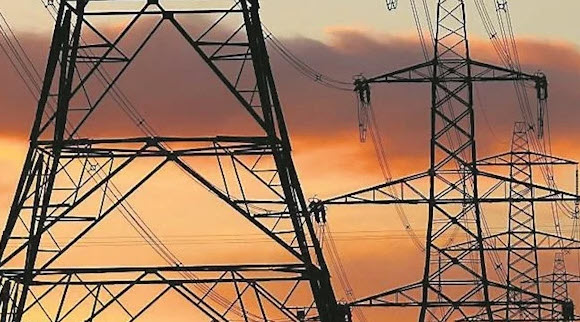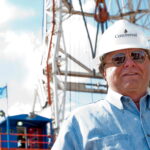Taoiseach Leo Varadkar’s oil exploration ban will drive Irish emissions yet higherand with higher imports will only serve to undermine energy security.

The political process has effectively been taken over by social media as panicked politicians virtue-signal even when their policies are counterproductive.
Ireland needs about 6GW to meet power demand at peak times and new data centres could add another 2GW of power demand, which is equivalent to decades of what is considered normal growth in demand.
Government policy promises that renewables will provide 70% of power but the pledges don’t take account of the reliable back-up from conventional power sources that are required by intermittent generators such as wind or solar.
Ireland’s scope for sourcing more power from hydro or geothermal is limited, which means the only reliable power back-up must be provided by fossil fuel unless we embrace 5th generation nuclear power which is prohibited by law.
This all adds up to the Government’s energy policy to being contradictory, illogical and dishonest. It is designed to throw shapes, rather than solve challenges and it jeopardises the island’s energy security.
The Government concedes the benefits of gas while making exploration uneconomic. That’s because oil and gas are co-mingled in reservoirs and in their source rocks. Typically, oil justifies the costs of exploration even in gas fields, like Corrib.
Many of the environmentalists’ objections assume the State controls markets andignore how free enterprise works: Governments can tax and issue tax credits andwhere allowed issue grants.
However, the State cannot, under the capitalist system, instruct investors areas in which to risk their money. Entrepreneurs do not worry about what will happen in 50 years; if you discount the hoped-for future cashflows from an investment at a risk-adjusted rate, it matters little what happens after the first 15 years.
No one is locked into fossil fuels and when the context changes, entrepreneurs adapt. Consider the controversy over imports of liquefied natural gas into Ireland.
Liquefied natural gas is purified natural gas compressed to a pressure of 600 atmospheres, or a temperature of -161C, for ease of transport. The methane can come from any source, including agricultural, biogenic, conventional fossil, or from fracking.
The Shannon Liquefied Natural Gas project aims to secure the cheapest natural gasavailable to provide affordable and secure energy because affordable energy is crucial for Ireland’s prosperity and jobs.
Ireland already imports gas from fracked wells and some imported electricity includes nuclear power.
All types of natural gas have been recovered from underground, and all reservoir rock must be drilled, to tap the gas. Liquefied natural gas is not dependent on EU subsidies. Although Shannon Liquefied natural gas has been designated as a ‘project of common interest’, Shannon Liquefied natural gas has received no funds from the EU.
[contextly_sidebar id=”Fb5ZoeEiU4PGmOrGNxyoAmRvRFyijZe0″]
Leftists champion Scandinavia as a development model, and yet Norway continues to pump two million barrels of oil daily until all its reserves are exhausted.
Unlike virtue-signalling Ireland, Norway continues to issue exploration anddevelopment licenses. It is self-sufficient in hydropower but Ireland is expected to match its carbon footprint.
In the 19th century, Norway had an emigration rate second only to Ireland’s. Oil discoveries gave the country welfare and eliminated poverty. Meanwhile, energy consumption and emissions continue to surge, driven by China, India, anddeveloping countries that are desperate for first-world lifestyles.
We live in the best of times on almost all objective measures of life expectancy of infant mortality, sanitation, healthcare, and education. Reliable, cheap energy drives this miracle: The number of people without electricity has fallen from 1.2 billion in 2010 to 840 million in 2016.
The average African is 19, while the average European is 37. That means future energy consumption growth, even if population growth moderates. Growth is necessary, not a luxury.
– David Horgan is director of Irish exploration firm Petrel Resources







